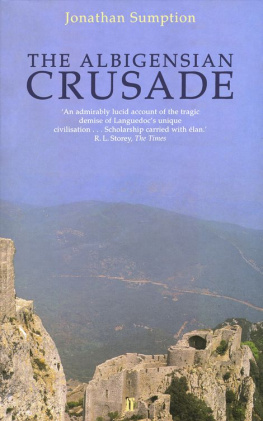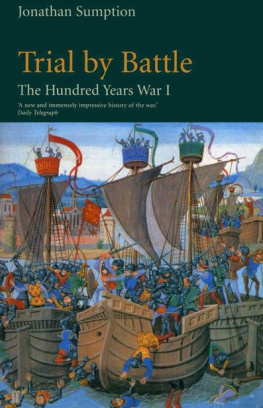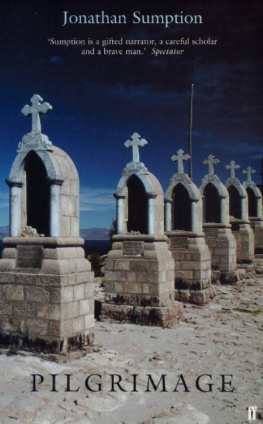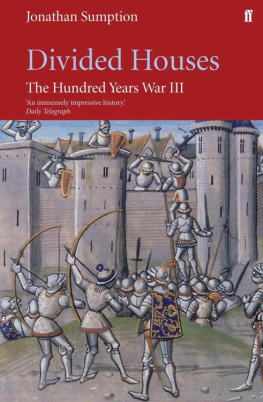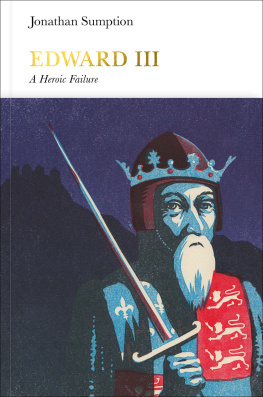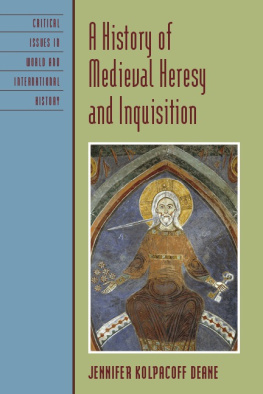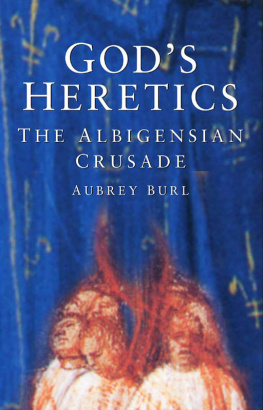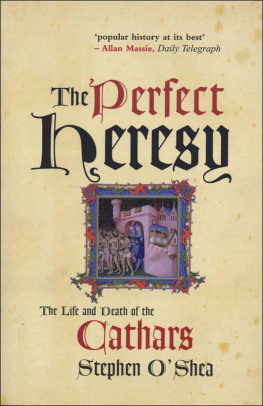If thou shalt hear say in one of thy cities , Let us go and serve other Gods ; then shalt thou surely smite the inhabitants of that city with the edge of the swords destroying it utterly and all that is therein. And thou shalt burn with fire the city and all the spoil thereof every whit for the Lord thy God. And it shall be an heap for ever; and it shall not be built again,
( DEUTERONOMY XIII. 1216.)
A land of wheat and barley, vines and fig trees.
DEUTBRONOMY VIII. 8
North of Arles, where the river Rhne divides, a papal legate was assassinated on a January morning in 1208. The legate, Peter of Castelnau, had left the abbey of St.-Gilles with a small bodyguard on the previous day and reached the west bank of the Rhne after nightfall. Since it was too late to cross the fast-flowing river by boat, the party spent the night near the river. Before dawn on 14th January they rose, said Mass, and set out towards the river bank. As they did so, a horseman approached unobserved, from behind and drove his lance into the legates back. Peter was hurled from his mule and died a few minutes later as dawn broke. His assailant escaped at the gallop to the nearby fortress of Beaucaire, leaving the legates attendants to carry his body back to St.-Gilles, some ten miles back along the road. In the abbey cloister he was buried by the monks carrying lighted candles and chanting the KyrieEleison.
The assassin had fled, but not before he was identified as a servant of Raymond VI, count of Toulouse. He had been in Raymonds suite at St.-Gilles on the previous day and may have witnessed the violent quarrel between the count and the papal legate. Some obscure solecism had lost him the counts favour, and he was looking for an opportunity to return to grace. But whether Raymond had inspired his enterprise, or had even known of it, is far from clear. In the course of a tempestuous interview, Raymond was said to have threatened Peter with violence and objected to the bodyguard provided for him by the abbot of St.-Gilles. The count had had both motive and opportunity, and the evidence, which at the time had seemed confused, acquired a misleading clarity by the time it reached Rome. Innocent III declared Peter of Castelnau to be a martyr and unequivocally named the count of Toulouse as his murderer.
Faith and Peace: there are no nobler causes in which to die a martyrs death, the pope declared in his obituary of the murdered legate. Undoubtedly Faith was better served by Peters martyrdom than Peace. A persuasive heresy of eastern origin had implanted itself in Raymonds dominions and had succeeded in converting a substantial part of the population. For more than fifty years the church had retreated in the face of a rival organization whose teaching appeared to orthodox theologians to question the foundations of Christian thought. The civil authorities had been unable, unwilling some believed , to prevent the further expansion of the sect. More than that, many of the nobility on whose intervention the church had rested its hopes were themselves infected by the spreading gangrene. Successive papal emissaries were unable to decide whether Raymond himself was among them. What was certain was that he had failed to suppress the heresy by force, and this made him a protector of heretics if not a heretic himself. Persuasion no longer seemed necessary or even useful. An army was recruited in northern France with the promise of indulgences equal to those offered to knights who fought the Infidel in the Holy Land. The death of Peter of Castelnau was avenged by one of the most savage of all mediaeval wars. Faith ultimately prevailed, as Innocent III had predicted, but the consequences of the Albigensian crusade went far beyond its aims. A semi-independent Mediterranean principality was conquered not only by French armies but by the civilization and manners of France. In place of the native dynasty, a member of the French royal family ruled the province from his residence in Paris, leaving the details of administration to bailiffs, officials, and inquisitors. The power of the French monarchy extended for the first time in four centuries to the Mediterranean.
These events marked the triumph of politics over geography. The Massif Central, sparsely populated, with few rivers and no roads, was a formidable barrier to any ambitious centralizing power based in the north. The hills were gentler closer to the Atlantic, but they were divided by great west-flowing riversthe Somme, the Seine, the Loire, the Dordogne, and the Garonnewhich too easily became the frontiers of upstart and independent principalities. The principal route from Paris to the Mediterranean was then, as now, the Rhne-Sane corridor, through which passed one of the richest trade routes of western Europe. But wealth bred power, and the great cities which punctuated the route served no king, for all their outward exhibitions of deference.
In the seventeenth century, cardinal Richelieu might look on the Rhine, the Alps, and the Pyrenees as marking off the natural area of France. But only the remarkable bureaucratic resources of his own government had made this possible. In the twelfth century when men spoke of France they meant northern France and their terminology, so strange to modern ears, had the sanction of political reality. The authority of the Capetian kings was recognized in less than a tenth of Richelieus natural area. The territory over which they exercised effective control was smaller still, amounting to no more than Paris, the Ile-de-France, a corner of Burgundy, and isolated enclaves in northern and central France. It is fair to say that their influence extended further than their power. But in the west and south of their kingdom they lacked even influence. The empire of the Angevin kings of England included the entire Atlantic coast of France from the Channel to the Pyrenees, and extended inland as far as Vernon, Tours, Clermont-Ferrand, and Agen. The frontier of the Holy Roman Empire lay not at the Alps but at the Rhne; Provence was an imperial territory ; Lyon and Avignon were frontier towns.
Even so, political frontiers mattered less than cultural ones. Poor communications and aristocratic independence left each region to develop its own cultural and political identity. At the margins, distinctions were blurred. But it remained possible for a Poitevin to regard Gascons as foreigners, and for a Burgundian abbot to speak of his native region as having no king, no duke, no prince. The rich province of Languedoc, which lay beyond the Aveyron, between the valleys of the Rhne and the Garonne, probably had less in common with the north of France than many parts of Germany. Its inhabitants, according to a Norman chronicler, were arrogant and hot-tempered and as different from the Franks as chickens are from ducks. The survival of Roman law, the prominent role of women, and the refinement of a society not organized for war, marked it off from the more disciplined north. Its literature was more secular and was written in the languedoc, a language which Dantes contemporaries, to the poets great disgust, regarded as finer than either Italian or French. Its prosperity was shaped by the trade routes of the Mediterranean. Its cities developed on Italian, not on northern lines. Historical accident and geographical convenience had contributed to its peculiar development . The break-up of the Roman Empire had had a rather less disturbing effect here than further north, and subsequent invasions by Frankish armies never penetrated quite as far as Languedoc. Although Charlemagne succeeded where his forebears had failed, his achievement did not long survive his death. The decay of the Carolingian empire was felt first at its extremities. The local counts, originally mere administrative officials, were left in unfettered control of their provinces . They became hereditary and, in time, independent of the Frankish monarchy. In the twelfth century the rulers of the south recognized the suzerainty of the Capetian kings and did homage for their dominions. But they well knew that the Capetians were weak and distant, and their suzerainty little more than nominal.

